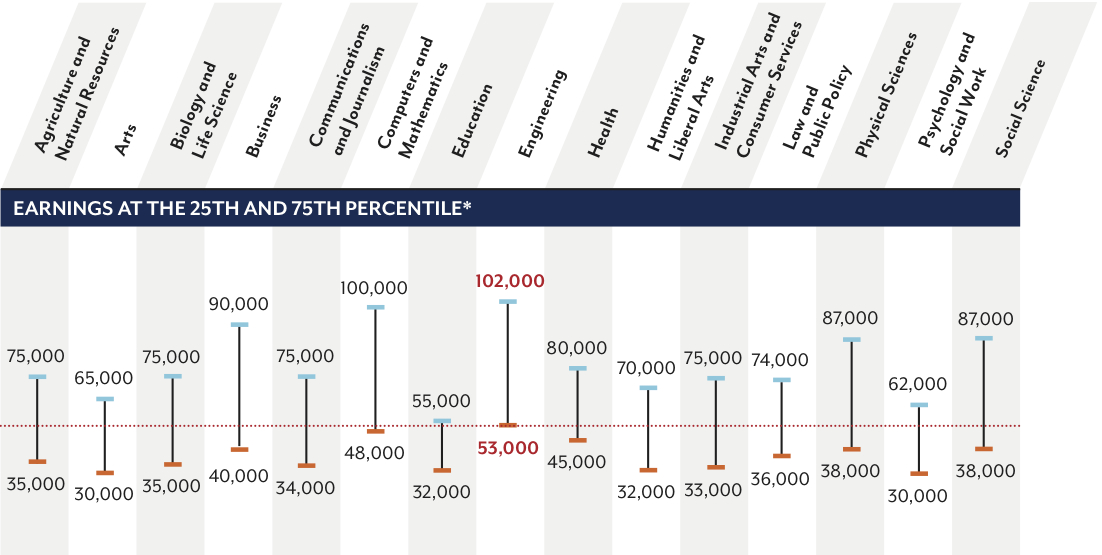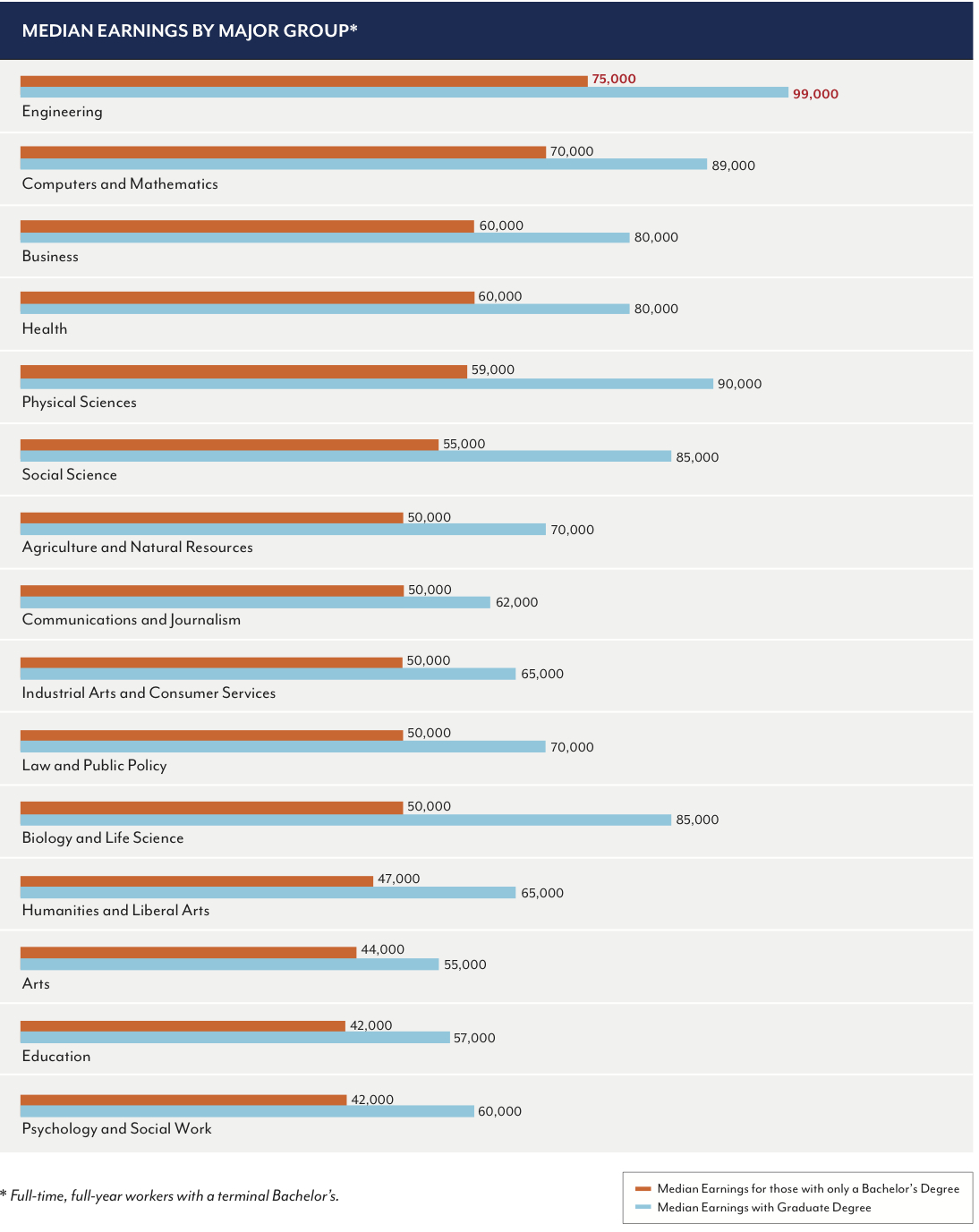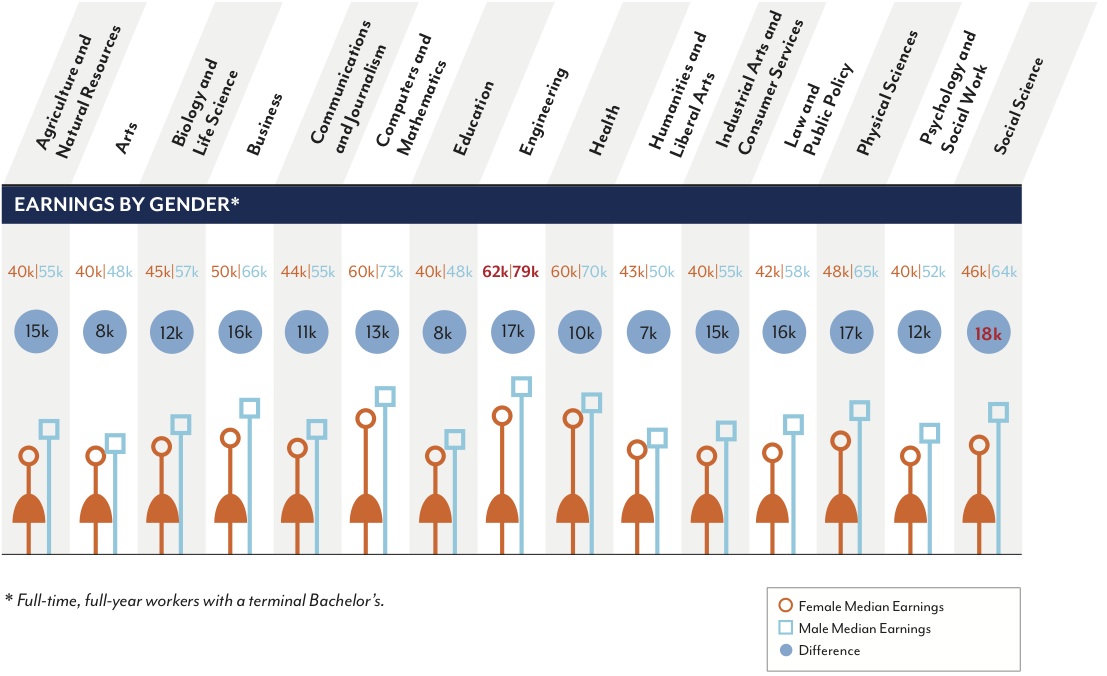How Many Years Of College To Get A Bachelor's Degree

Steve Jobs may claim that the humanities are important for colleges, but Apple's not hiring philosophers to build iPhones. A new report from Georgetown University confirms much of what we already knew about the financial payoff of college majors: Hard-scientists swim in a Scrooge McDuck-size vault of gold, while literature majors panhandle with multi-syllabic signs. The report further confirms many of the unfortunate stereotypes of poor minorities and female caregivers that progressive Americans would sooner forget.
Science rules, social drools
Engineers are the king of the cash hill, raking in a median salary of $75K, while Psychology and Social Worker graduates beg for the trickle-down table scraps, amounting to $42K. The brightest light in the non-hard sciences is the Social Sciences, with economists earning $70K, using their savvy knowledge of money to rake in more than their compatriots in both finance and architecture.
Art majors are pretty much doomed to small studio apartments, maxing out at $46K for a career in film (the graph below represents the bottom 25 percentile to the top 75th percentile earnings for each major; dotted line indicates median).

For (really) longterm thinkers, or for those who love studying, graduate school boosts earnings roughly 20-65%, which is several hundred thousand dollars in life-time earnings–if you can make it through the debt-addled, post-grad, Ramen-noodle dirge of your late 20s and 30s.

For the risk averse, occupations in military technologies and school student counseling had 100% employment; studio arts had a measly 9% (but what about artists who draw missiles?).
Stereotypes Abound
The study is a gender and race stereotype smorgasbord: Top fields for women are early childhood education and medical assisting services; men can expect to earn the least if they pursue drama or elementary education occupations.
Even within Elementary Education, men earn about $3,000 more (at $39,000), which is a gap that is consistent across every occupation. "Gender inequality, as expressed in pay differences, is rampant across virtually every major," notes the report.

Occupation by race could possible be the worst stereotype offender: Asians concentrate in Computer Engineering and Statistics, while African Americans major the most in Social Work, Counseling, and Community Organization (though, this last one did work out quite well for at least one well-known person).
The whitest occupation is Forestry.
Conclusions
Georgetown's report is fodder for the ongoing debate over whether college is worth the crushing tuition debt and time lost to studying sociology. The report claims a Bachelor's is worth a salivating 85% increase in income. However, the study is only meant to be a snapshot of the American workforce and did not control for any other factors in this income estimate, such as occupation or individual traits related to business success.
When other factors associated with business success are taken into account, Professor of Economics at the University of California David Neumark tells Fast Company that economists generally find around a 35% increase in earnings.
All of this is for naught, if you're on board with PayPal Founder Peter Thiel's $2 million bet that smart kids do better dropping out of school and starting businesses. As his theory goes, the intelligence and ambition of successful graduates are the real reason college appears to boost earnings.
The results of his experiment, and the worth of a college degree, is still anyone's guess.
All we know is that if a Petrochemical Engineer goes on a date with a Studio Artist, the former is probably paying for dinner.
Follow Greg Ferenstein on Twitter. Also, follow Fast Company on Twitter.
[Image: Flickr user The Wolf]
How Many Years Of College To Get A Bachelor's Degree
Source: https://www.fastcompany.com/1755375/what-college-degrees-are-really-worth
Posted by: rodriguenother44.blogspot.com

0 Response to "How Many Years Of College To Get A Bachelor's Degree"
Post a Comment